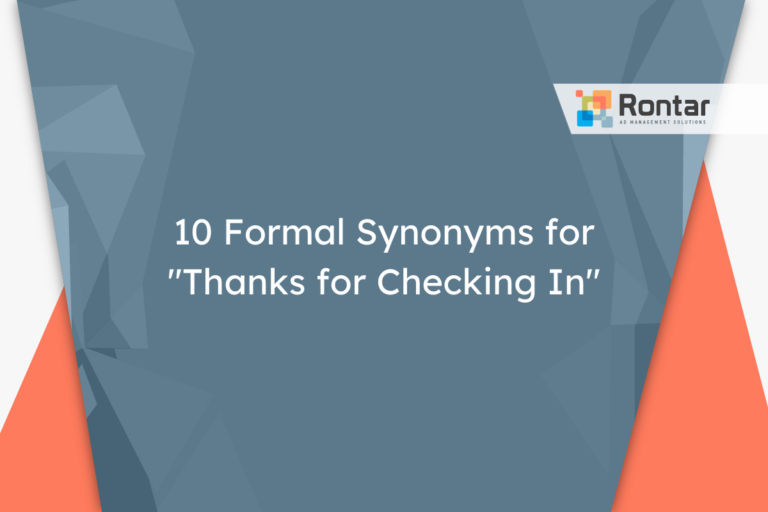10 Other Ways to Say “I Understand Your Concern”

The phrase “I understand your concern” is often used to show empathy and understanding. However, repeatedly using the same phrase can become stale and seem insincere.
This article explores ten alternative expressions that you can use in professional settings to convey the same message in a fresh and sincere way.
Is It Professional to Say “I Understand Your Concern”?
Yes, saying “I understand your concern” is considered to be professional, formal or informal depending on the context, and polite. You can use this phrase in formal emails, during meetings, or in personal conversations to show empathy and acknowledge someone else’s point of view or worries. It’s suitable with clients, colleagues, or even in customer service scenarios.
Email example:
Dear Emily,
I understand your concern, and I assure you that we are doing everything possible to meet our deadline without compromising quality. Let's schedule a meeting to discuss this further and find a way forward.
Best regards,
Michael
Pros:
- Shows empathy and understanding
- Helps to build trust and rapport
- Encourages open communication and dialogue
- Can de-escalate a potentially tense situation
Cons:
- May sound insincere if overused or not followed by action
- Could be interpreted as dismissive without further qualification
- May not offer a solution to the concern at hand
Sometimes, someone might want to use an alternative phrase to better suit the specific context or tone they’re aiming for.
10 Other Ways to Say “I Understand Your Concern”
Here are ten common alternatives to “I Understand Your Concern” that can be used in a professional email within a workplace environment:
- I hear what you’re saying
- I see where you’re coming from
- Your concerns haven’t gone unnoticed
- I grasp the seriousness of the situation
- I acknowledge your point of view
- I’m aware of the issue
- Thank you for bringing this to my attention
- Your worries are understandable
- I get the picture
- We’re on the same page
1. I hear what you’re saying
This alternative is very similar to saying “I understand your concern” but adds an element of active listening. It implies not just understanding but also paying close attention to the speaker’s or writer’s words. This can be particularly effective in emails or meetings where you want to emphasize your attentiveness.
This phrase is best used in a professional and informal setting. It works well in emails addressing team members’ concerns or in discussions where ensuring the other party’s points are acknowledged is crucial. It fits nicely in both written and verbal communication.
Example:
Dear Alex,
I hear what you're saying about the project delays, and I'm actively working on a solution. Let's discuss this further tomorrow.
Best,
Jordan
2. I see where you’re coming from
This alternative to “I understand your concern” shows empathy and indicates that you can put yourself in the other person’s shoes. It’s a synonym that’s effective in situations where you want to validate someone’s viewpoint or feelings.
It’s suited for professional communications that also border on the informal, making it perfect for emails to colleagues or during mediation in conflicts. This phrase promotes a constructive atmosphere in dialogue.
Example:
Hi Casey,
I see where you're coming from with your concerns about the new policy. Let's schedule a time to talk about how we can address these.
Regards,
Emma
3. Your concerns haven’t gone unnoticed
This phrase emphasizes that you’ve not only understood but also acknowledged the concern raised. It reassures the recipient that their issue is being taken seriously. It’s typically used in professional settings when you want to assure someone that actions are being taken regarding their concerns.
Best suited for emails or meetings where concerns might have been raised previously, and you wish to reassure the recipient that you are working towards a solution. It works well in both internal and external communications.
Example:
Dear Blake,
Your concerns haven't gone unnoticed. We are in the process of reviewing the procedures to ensure this doesn't happen again.
Kind regards,
Sophie
4. I grasp the seriousness of the situation
This synonym of “I understand your concern” underscores the depth of your comprehension regarding the issue at hand. It is particularly potent in conveying empathy and seriousness in addressing the concerns raised.
This phrase fits well in professional and somewhat formal contexts, especially when responding to critical feedback or in crisis communications. It reassures the correspondent that their concerns are being taken with the seriousness they deserve.
Example:
Dear Morgan,
I grasp the seriousness of the situation with the missed delivery dates. Rest assured, we are investigating this as a priority.
Best wishes,
Liam
5. I acknowledge your point of view
This alternative is more formal than saying “I understand your concern” and is used to express that not only do you understand what has been said, but you also recognize and respect the other person’s perspective. It’s a polite way of beginning a dialogue towards resolution.
This phrase is particularly useful in professional correspondences or discussions where there’s a need to navigate differing opinions tactfully. It is ideal for emails, meetings, or any communication medium where acknowledging differing viewpoints is crucial.
Example:
Dear Pat,
I acknowledge your point of view on the upcoming project strategy. I believe a meeting to discuss this further could be beneficial.
Sincerely,
Dana
6. I’m aware of the issue
This signifies not just understanding but also awareness of the concern or problem. It’s a direct way of acknowledging an issue without immediately delving into deeper empathy.
It’s especially useful in professional situations where you need to quickly acknowledge an issue before providing more information or a solution. It’s great for emails where the problem is already known and you’re providing an update or next steps.
Example:
Hey Jamie,
I'm aware of the issue with the software bug. Our team is currently working on a fix.
Best,
Robin
7. Thank you for bringing this to my attention
This phrase is both polite and professional, showing appreciation for the effort made by someone to communicate their concern. It’s a synonym that emphasizes the value of the information provided by the correspondent.
This is well-suited for professional emails where feedback is being acknowledged, especially when it’s about something you were not previously aware of. It shows politeness and a readiness to engage further on the topic.
Example:
Dear Taylor,
Thank you for bringing this to my attention. I appreciate your diligence and will look into the matter immediately.
Warm regards,
Jordan
8. Your worries are understandable
This alternative communicates empathy and validates the recipient’s feelings or concerns as being reasonable. It’s a polite way to start a conversation about finding a solution.
Recommended for professional but not overly formal email communication, especially in scenarios where you want to soften the tone and connect on a more personal level. It’s great for discussions with team members or clients who have expressed concerns.
Example:
Hi Avery,
Your worries are understandable, and I want to assure you we are on track to address these issues promptly.
Regards,
Chris
9. I get the picture
This phrase is an informal synonym for “I understand your concern” that conveys a quick understanding of the situation. It’s less formal and more suited to friendly, professional email exchanges.
It’s best used in informal, professional contexts where the tone allows for a more casual expression. This could be internal team emails or communications with long-standing clients with whom you have an established rapport.
Example:
Hey Jordan,
I get the picture regarding the team's workload. Let's discuss how we can redistribute the tasks more effectively.
Cheers,
Alex
10. We’re on the same page
This expression indicates not only understanding but also agreement, making it useful for affirming shared views or consensus. It’s a friendly, reassuring way to express empathy and solidarity.
This phrase works well in professional settings where consensus is being highlighted or confirmed. It’s perfect for emails, meetings, or discussions aimed at reinforcing team alignment or agreement on a course of action.
Example:
Hello Sam,
We're on the same page about the importance of addressing client feedback. Let’s work together on implementing these changes efficiently.
Best,
Reese
Final Thoughts
Changing up the way you express understanding in the workplace can make a big difference in how your messages are received. Each alternative phrase we’ve covered offers its own unique tone, fitting various professional scenarios and relationships. Using these alternatives can help your communication feel more genuine and thoughtful.






